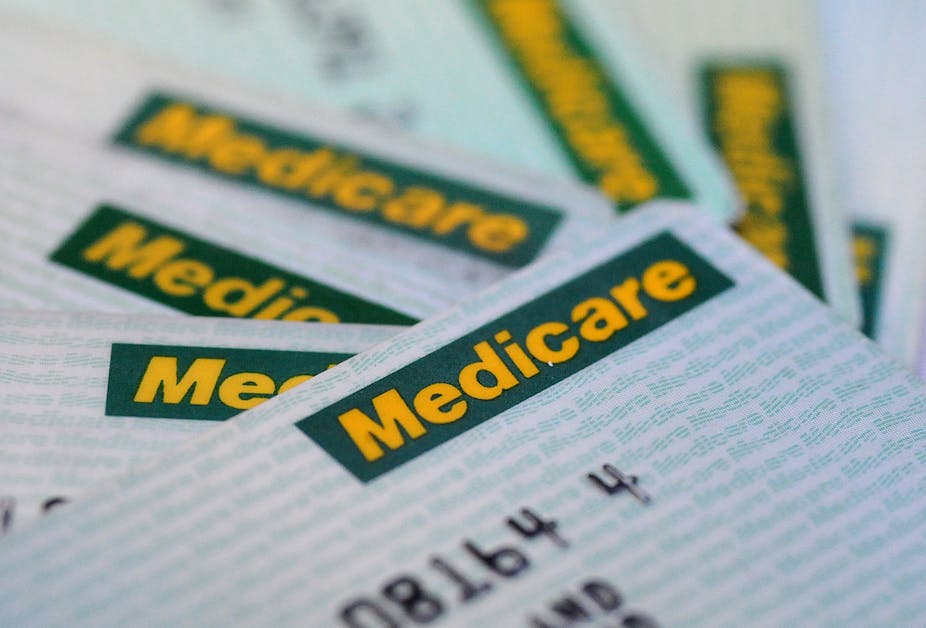Opposition Health spokesman Peter Dutton has called Medicare Locals “an extra layer of bureaucracy”, and signalled the Coalition will remove them if it’s elected. His conclusion that they’re a waste of time does not have a basis in evidence because the final 25 of the 62 Medicare Locals will not come into being until July 1.
Primary health care in Australia is a messy beast, with many heads and all sorts of body parts. But it’s centrally important because it plays a major role in achieving public health outcomes.
Primary health care is about more than medical care – it includes health promotion, illness prevention, care of the sick, patient advocacy and community development. Countries with a strong emphasis on it have lower health-care costs, greater health equity and better population health outcomes.
A Primary Health Care Strategy was developed by the Department of Health and Ageing in 2010 as part of the broader health-system reforms initiated in 2007. Its focus includes improving access and reducing inequality; better management of chronic conditions; and more attention to prevention.
A key component of the government’s reform is the establishment of Medicare Locals.
What are Medicare Locals?
Medicare Locals are primary health-care organisations established to coordinate care delivery and tackle local needs and service gaps. Their task is to drive improvements in health and ensure that services are better tailored to meet the needs of the communities they serve.
More specifically, Medicare Locals’ task is to deliver:
- better planning for all primary health-care services, based on patient needs and improved equity;
- integration of new GP super clinics with other services;
- transparency in the planning process, and about health outcomes;
- consultation with the community on filling gaps and needs;
- and more individual care plans with communication to make them work.
This is a big ask, especially with modest budgets to run the Medicare Locals (a total of $417 million for all 62 of them). And since the big source of funds for primary care services is separate and allocated automatically by claims from the Medicare Benefits Scheme.
The first Medicare Locals have now been in operation for a number of months and there will be 62 operating by July 2012.
Hurdles and challenges

Medicare Locals will find it hard to take a broad view of primary health care. They will have to think about social as well as medical care, and community as well as individual problems. They will face particular challenges in socioeconomically disadvantaged communities.
These organisations will need to develop a population and health-service plan to address needs in their local area. So they will need to look at their population and develop primary prevention programs for it.
They will need to support integrated care and enhance coordination for people with chronic diseases and complex needs. The latter of these tasks will be difficult but we think the development of primary prevention programs will be the most challenging.
Medicare Locals work mainly with general practices, which are usually private businesses, working on a fee-for-services model. This model is characterised by time-limited episodic care and one that representative bodies of medical practitioners will fight hard to protect.
But it’s not a model that’s really conducive to inter-sectoral collaboration (across the areas of housing, social services, education and so on), which is the main characteristic of primary health care. Neither is it really conducive to primary prevention.
We know the drivers of disadvantage, and of ill health linked to that disadvantage, are outside the health system. And while macro-level policy may talk about primary health care, policy at the Medicare Local level will have enormous challenges in re-orienting thinking about how to deliver care. And how to focus on prevention rather than treatment.
Sharing responsibility for health
The performance of Medicare Locals warrants careful scrutiny. If they do well, we will see collaboration with a range of vital health-service providers beyond general practitioners, and this will certainly include Aboriginal Medical Services and aged care providers.
If good practice is applied, communities will hear from their Medicare Local and will be able to find out about existing gaps and plans that are being put in place to fill these.
Preventative health efforts will be well coordinated and led. Patients will see improvements in the timeliness and quality of local care and may be pleasantly surprised to find that their health records move around with them – even from hospital to community and back again!
It’s a big ask, but no more than we should expect because health is a shared responsibility. Hopefully, the Coalition will give Medicare Locals a chance rather than blindly stamping them out before their bloom.

